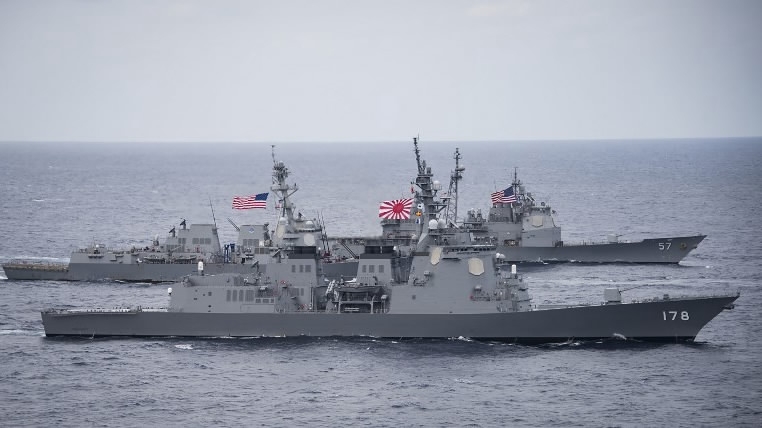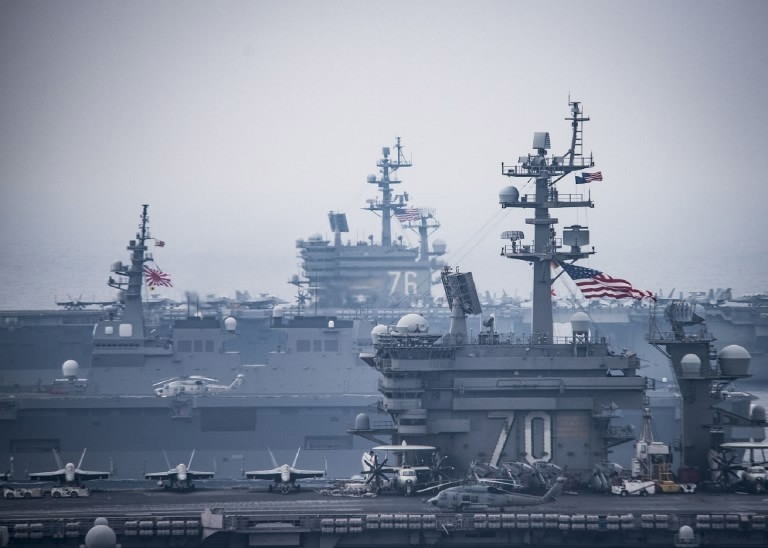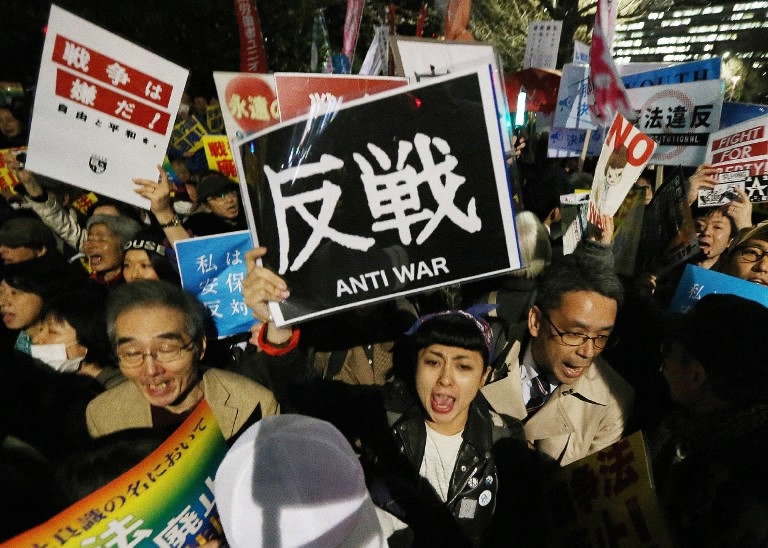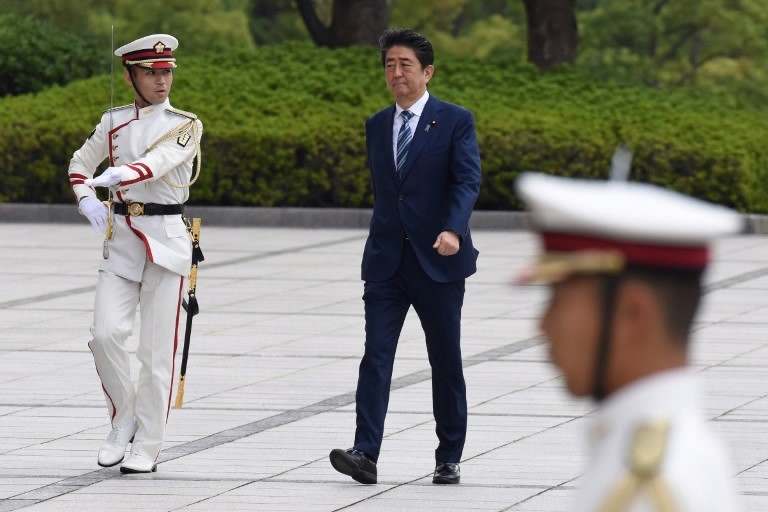
Politics
22:04, 14-Sep-2017
Japan's refueling of US Aegis warships under new security laws sparks controversy
CGTN

Japan's Maritime Self-Defense Force (MSDF) has been involved in refueling US warships in the Sea of Japan under new controversial security laws that came into effect last year, defense ministry sources said Thursday.
According to Kyodo News, a government source confirmed that MSDF supply ships have conducted multiple refueling missions since April to US Aegis ships in the Sea of Japan, marking the second time Japan's MSDF has carried out expanded operations under the new security laws.
In May, the defense ministry said a Japanese destroyer escorted a US naval vessel, marking the first time that such a mission had been carried out under the new contentious legislation.
The new security legislation allows more flexibility to the MSDF, such as providing supplies, including oil, to US warships conducting operations in the region.

The Japan Maritime Self-Defense Force and US Navy forces routinely train together. /AFP Photo
The Japan Maritime Self-Defense Force and US Navy forces routinely train together. /AFP Photo
The legislation also applies to Japan's wider Self-Defense Forces (SDF) as part of the administration of Prime Minister Shinzo Abe's push to broaden Japan's international military footprint.
The security legislation and the government's moves to bolster the SDF's presence on a global stage have been widely criticized at home and abroad for running contrary to Japan's postwar commitment to pacifism and the constitution that ensures it.
From new security laws to constitution revision
The new security laws broadening the operational scope of the SDF came into effect last March, triggering nationwide protests slamming the Japanese government for circumnavigating the constitution.
The general public, citizens' groups, legal bodies and notable scholars here also lambasted the Abe-led administration for forcing the necessary bills through both chambers of parliament and into law by way of the ruling Liberal Democratic Party's (LDP) overwhelming majority.

Demonstrators protest against the new security law on March 29, 2016, as they rally outside the Diet building in Tokyo. /AFP Photo
Demonstrators protest against the new security law on March 29, 2016, as they rally outside the Diet building in Tokyo. /AFP Photo
In April last year, a revised agreement between Japan and the United States came into effect on logistical cooperation between the two countries' forces as part of the new broader security laws.
Prior to the new laws taking effect, the SDF was limited to refueling US warships only during joint Japan-US exercises and on other restricted occasions requiring the enactment of a special law.
Japan's top government spokesperson Yoshihide Suga on Thursday told a regular press briefing that SDF personnel have been involved in providing supplies to the US military, but held back from providing specifics.
"I cannot comment on the issue because it will unveil the details of the operations of the SDF and the US military," Suga was quoted as saying.

Japan's Prime Minister Shinzo Abe (C) reviews the guard of honor at the Defense Ministry in Tokyo, September 11, 2017. /AFP Photo
Japan's Prime Minister Shinzo Abe (C) reviews the guard of honor at the Defense Ministry in Tokyo, September 11, 2017. /AFP Photo
Such military-related moves by Japan recently, including the defense ministry's recent record budget request for Fiscal Year 2018 of 5.26 trillion yen (47.60 billion US dollars), with allocations for a plethora of next-generation military hardware, have unsettled the public here.
Political and defense analysts here have also stated that Abe, who is steadily working toward his career goal of ultimately revising a key clause of Japan's constitution that outlaws using war as a means to settle international disputes and prohibits armed forces with war potential being maintained, is intentionally thwarting the nation's Supreme Law.
Along with the majority of the public here widely opposed to Abe's plans to revise Japan's war-renouncing constitution, Japan's closest neighbors who suffered terribly at the hands of its past militarism are also concerned about Japan's bolstering of the nation's military forces and expanded operational maneuvers.
Not only are such moves in direct contravention of Japan's constitution, they threaten to further strain regional ties and have the potential to severely disrupt regional peace and security, local and regional experts on the matter have attested.
(Top image: File AFP photo)
Source(s): Xinhua News Agency

SITEMAP
Copyright © 2018 CGTN. Beijing ICP prepared NO.16065310-3
Copyright © 2018 CGTN. Beijing ICP prepared NO.16065310-3